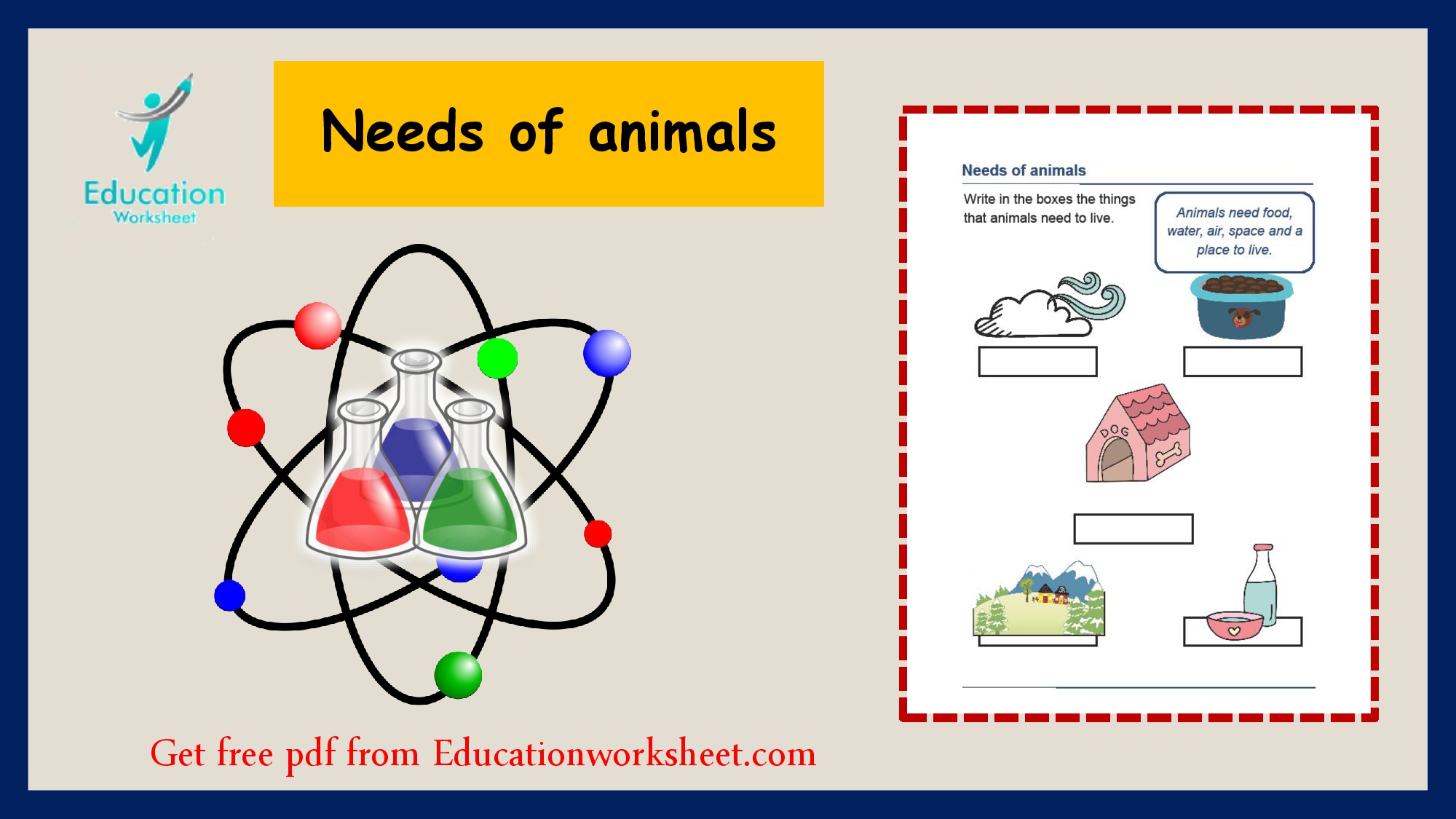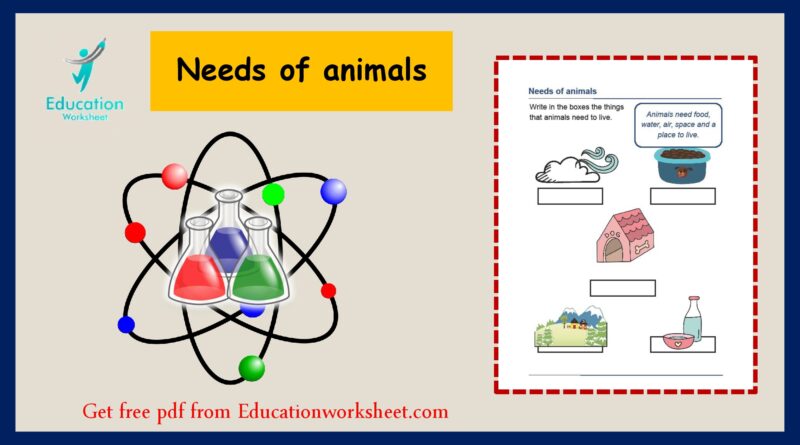Basic needs of animals worksheet.
Basic needs of animals worksheet.
Animals have basic needs that are essential for their survival and well-being. These needs are similar across different species, although the specific requirements may vary depending on the type of animal. TheBasic needs of animals . typically include:

Basic needs of animals.
Food:
Animals need a source of nutrition to provide energy and essential nutrients for growth, maintenance, and bodily functions. Different species have different dietary requirements, including herbivores (plant-eaters), carnivores (meat-eaters), and omnivores (eating both plants and animals).
Water:
Water is essential for all living organisms. Animals need water for various physiological processes, including digestion, circulation, temperature regulation, and waste elimination. The availability of clean and accessible water is crucial for an animal’s survival.
Shelter:
Animals require a suitable habitat or shelter to protect them from environmental factors such as extreme weather, predators, and competition. Depending on the species, shelters can include burrows, nests, dens, caves, or other forms of protection.
Air:
Oxygen is necessary for respiration, which provides animals with the energy they need for daily activities and survival. Terrestrial animals obtain oxygen from the air, while aquatic animals obtain it from dissolved oxygen in water.
Temperature Regulation:
Animals need to maintain their body temperature within a certain range to function properly. This can involve behaviors like seeking shade, huddling for warmth, or cooling off in water.
Reproduction:
Reproduction is essential for the continuation of a species. Animals have various reproductive strategies, including mating, laying eggs, giving birth to live young, and asexual reproduction in some cases.
Social Interaction:
Many animals are social creatures that require interaction with others of their kind. Social bonds can provide protection, support in hunting or foraging, and opportunities for mating and raising offspring.
Healthcare:
Animals may need to maintain their health by grooming, removing parasites, or seeking medical attention when injured or sick.
Safety:
Animals need to protect themselves from predators and other threats. This can involve behaviors like hiding, camouflage, or developing defensive mechanisms like shells or spines.
Territory or Space:
Some animals establish territories or require a certain amount of space to find food, mate, and raise their young. Maintaining territory can be crucial for survival and reproduction.
It’s important to note that the specific needs of animals can vary greatly depending on their species, habitat, and evolutionary adaptations. Meeting these basic needs is essential for an animal’s survival, and any disruption in these requirements can have detrimental effects on their health and overall well-being.

